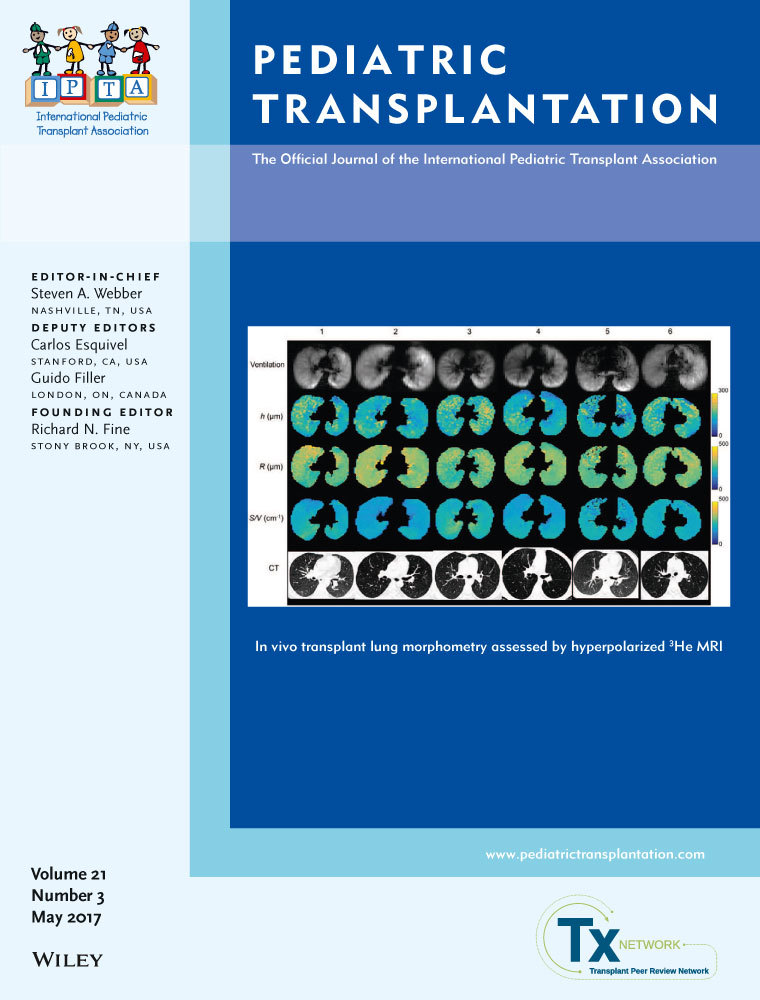Bortezomib in the treatment of antibody-mediated rejection in pediatric kidney transplant recipients: A multicenter Midwest Pediatric Nephrology Consortium study
Abstract
Antibody-mediated rejection leads to allograft loss after kidney transplantation. Bortezomib has been used in adults for the reversal of antibody-mediated rejection; however, pediatric data are limited. This retrospective study was conducted in collaboration with the Midwest Pediatric Nephrology Consortium. Pediatric kidney transplant recipients who received bortezomib for biopsy-proven antibody-mediated rejection between 2008 and 2015 were included. The objective was to characterize the use of bortezomib in pediatric kidney transplant recipients. Thirty-three patients received bortezomib for antibody-mediated rejection at nine pediatric kidney transplant centers. Ninety percent of patients received intravenous immunoglobulin, 78% received plasmapheresis, and 78% received rituximab. After a median follow-up of 15 months, 65% of patients had a functioning graft. The estimated glomerular filtration rate improved or stabilized in 61% and 36% of patients at 3 and 12 months post-bortezomib, respectively. The estimated glomerular filtration rate at diagnosis significantly predicted estimated glomerular filtration rate at 12 months after adjusting for chronic histologic changes (P .001). Fifty-six percent of patients showed an at least 25% reduction in the mean fluorescence intensity of the immune-dominant donor-specific antibody, 1-3 months after the first dose of bortezomib. Non-life-threatening side effects were documented in 21 of 33 patients. Pediatric kidney transplant recipients tolerated bortezomib without life-threatening side effects. Bortezomib may stabilize estimated glomerular filtration rate for 3-6 months in pediatric kidney transplant recipients with antibody-mediated rejection.




